
Niccolò di Bernardo dei Machiavelli was a Florentine diplomat, author, philosopher, and historian who lived during the Italian Renaissance. He is best known for his political treatise The Prince, written around 1513 but not published until 1532, five years after his death. He has often been called the father of modern political philosophy and political science.

General Gabriele D'Annunzio, Prince of Montenevoso, sometimes written d'Annunzio as he used to sign himself, was an Italian poet, playwright, orator, journalist, aristocrat, and Royal Italian Army officer during World War I. He occupied a prominent place in Italian literature from 1889 to 1910 and in its political life from 1914 to 1924. He was often referred to by the epithets il Vate and il Profeta.
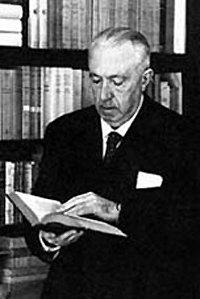
Carlo Emilio Gadda was an Italian writer and poet. He belongs to the tradition of the language innovators, writers who played with the somewhat stiff standard pre-war Italian language, and added elements of dialects, technical jargon and wordplay.

Carlo Alberto Camillo Mariano Salustri, known by the pseudonym Trilussa, was an Italian poet, writer and journalist, particularly known for his works in Romanesco dialect.
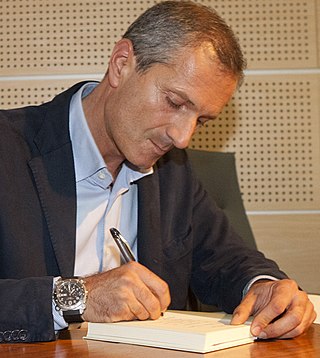
Gianrico Carofiglio is an Italian novelist and former anti-Mafia judge in the city of Bari. His debut novel, Involuntary Witness, published in 2002 and translated into English in 2005 by Patrick Creagh, was published by the Bitter Lemon Press and has been adapted as the basis for a popular television series in Italy. The subsequent novels were translated by Howard Curtis and Antony Shugaar.

Vincenzo Cardarelli, pseudonym of Nazareno Caldarelli was an Italian poet and journalist.
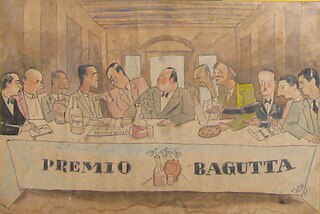
The Bagutta Prize is an Italian literary prize that is awarded annually to Italian writers. The prize originated among patrons of Milan's Bagutta Ristorante. The writer Riccardo Bacchelli discovered the restaurant and soon he regularly gathered numerous friends who would dine there together and discuss books. They began charging fines to the person who arrived last to an appointed meal, or who failed to appear.
Giorgio Bàrberi Squarotti was an Italian academic, literary critic and poet. He taught at the University of Turin from 1967 until his death in 2017. He was considered to be one of the most important literary critics of his time.

This timeline lists important events relevant to the life of the Italian diplomat, writer and political philosopher Niccolò di Bernardo dei Machiavelli (1469–1527).
Carlo Milanuzzi was an Italian composer of the early Baroque era.
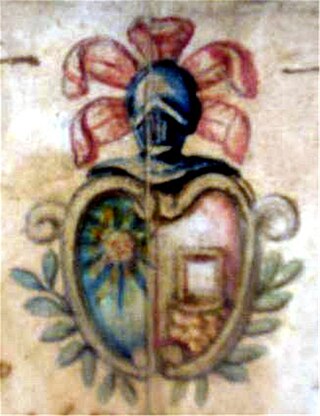
Pozzo Ardizzi surname comes from the city of Vigevano province of Pavia, Italy, which was formed around the middle of the fifteenth century from a branch of the family that is separated from the noble surname Ardizzi.
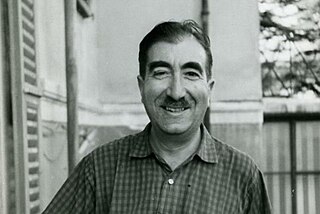
Gianfranco Contini was an Italian academic and philologist.

Francesco Maria Tricarico, better known under the mononym Tricarico, is an Italian singer-songwriter. Tricarico is mainly known for his top-five hits "Io sono Francesco", released in 2000, and "Vita tranquilla", which was launched during the Sanremo Music Festival 2008.
Piero Gadda Conti was an Italian novelist and film critic.

Bonifazio Graziani was an Italian organist, composer and clergyman in the Baroque period.

Massimo Gramellini is an Italian writer and journalist working at Corriere della Sera.

The Bollettino della Vittoria Navale is the official document written after the armistice of Villa Giusti with which the admiral Paolo Thaon di Revel, supreme commander of the Royal Italian Navy, announced, on 12 November 1918, the surrender on the seas of the Austro-Hungarian Empire and Italy's victory in the World War I.
Anna Bravo was an Italian social historian and feminist.

Ettore Bignone was an Italian classical philologist and man of letters.